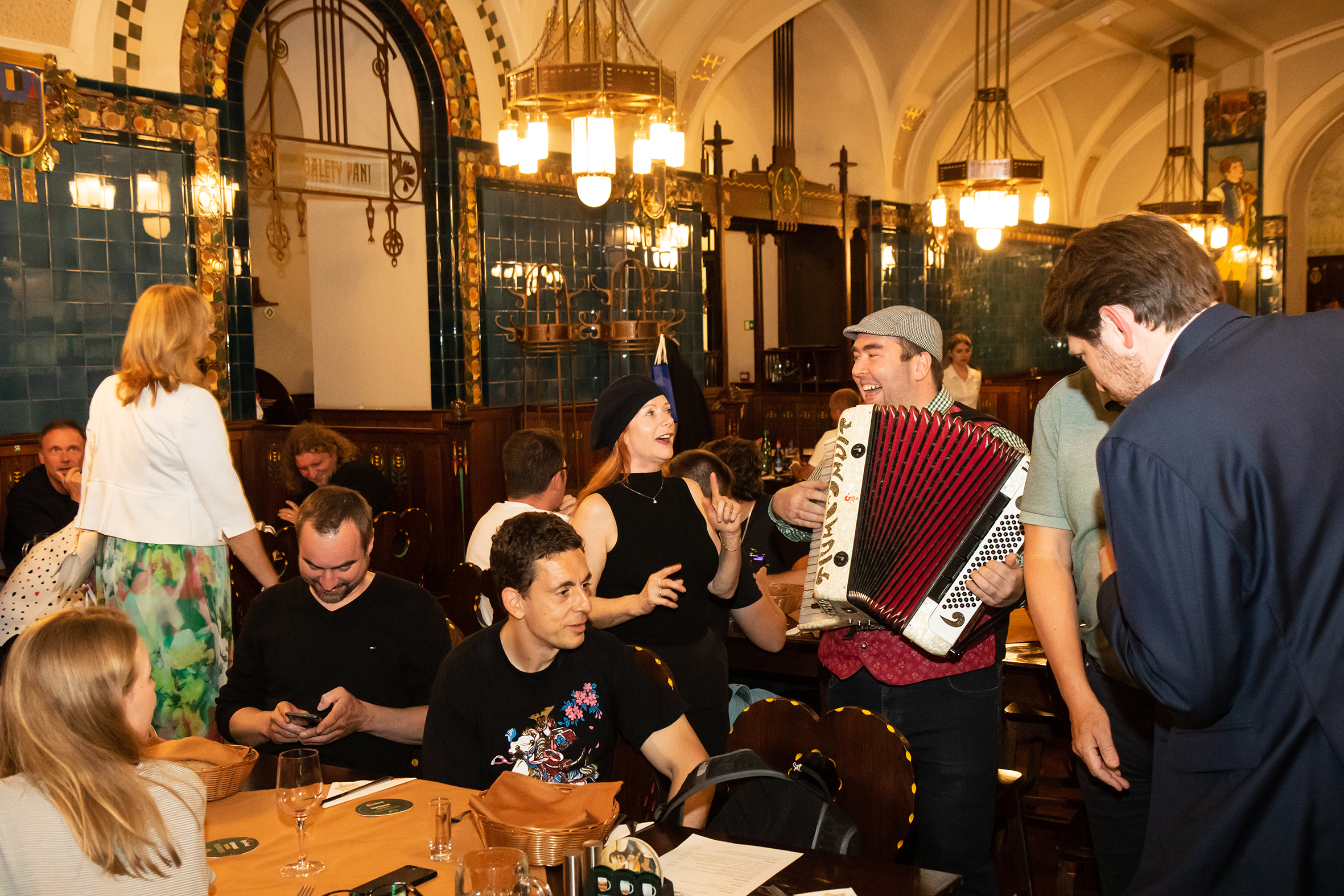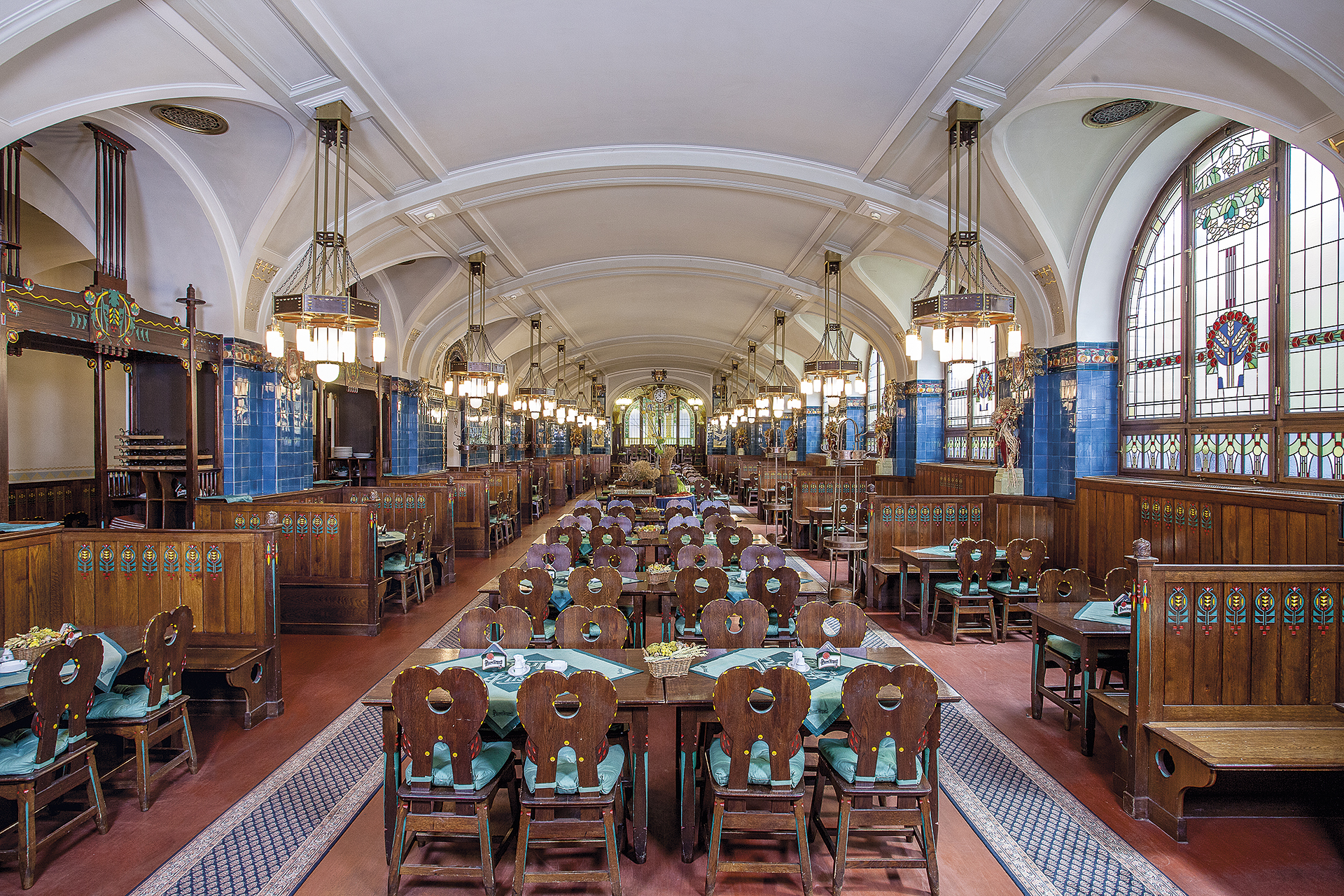Programme

Banquet
Municipal House Brewery
Beautiful traditional pub in art-deco style, in the very centre of the city, just on the border between Old Town and New Town (the Old Town was founded in 12th century, the New Town was founded in 14th century).
It is part of the Municipal House, one of the most beautiful art-deco houses in the world.
The meal includes;
- Cold buffet,
- Salad buffet,
- Soup,
- Main course (several options) with side dishes and desserts,
- Beverages include beer (Pilsner Urquell), wine and non-alcoholic drinks.
Price: 85 € (70 € for students)
Early Career Mixer

The Early Career Mixer will be hosted at a great pub on Wednesday, January 10th from 5-7 pm!
U Šumavy is just one metro stop away from the Prague Congress Centre.
Address: Štěůánská 3, Praha 2
Workshop
-
sdm A reproducible and extensible R package for species distribution modelling
Instructor: Babak Naimi1 (naimi.b@nullgmail.com)
1University of Evora, Portugal
Abstract: sdm is a comprehensive modelling and simulation framework that enables fitting of individual and community-based species distribution models, while supporting different modelling methods including correlative, process-based (mechanistic), agent-based, and cellular automata. The workshop will include two sessions. In the first, the package will be introduced and its capabilities will be demonstrated. In the second, the participants will have the opportunity to practice on their own laptops using their own or instructor-provided data.
Requirements: Participants should have previous experience with R and bring their laptops (with R and RStudio installed)
Duration Full-day workshop
Reference: Naimi, B. & Araújo, M.B. (2016) sdm: a reproducible and extensible R platform for species distribution modelling. Ecography. 39: 368–375. DOI: 10.1111/ecog.01881
Maximum capacity: 30
Participant Fee: 85 USD
-
Unlocking the modularity of Wallace v2: Incorporating custom R functions into a shiny application for modelling species niches and distributions
Instructors: Gonzalo E. Pinilla-Buitrago1 (gpinillabuitrago@nullgradcenter.cuny.edu), Bethany A. Johnson1, and Jamie M. Kass2
1City College of New York and the Graduate Center of the City University of New York. New York, United States.
2Okinawa Inst. of Science and Technology Graduate Univ., Biodiversity and Biocomplexity Unit, Onna, Okinawa, Japan.
Abstract: This workshop will introduce participants to Wallace EcoMod, a modular R-based application for building, evaluating, and visualizing models of species niches and distributions. Wallace does this by guiding users through sequential steps of analysis called “components” and methodological options within each component called “modules.” The focus will be on integrating tools from R packages to customize the Wallace v2 workflow (see requirements below). The workshop will provide an overview of Wallace’s functionalities and guide participants through the module authorship process, explaining the steps involved in adding a module, best practices to follow, and the occasional troubleshooting.
Requirements: This workshop targets researchers who have written custom functions related to species distribution modelling, and want to author their own Wallace module. Participants should have a solid working knowledge of R and bring their laptops.
Duration: Full-day workshop with a maximum of 15 participants.
Reference: Kass, J. M., Pinilla‐Buitrago, G. E., Paz, A., Johnson, B. A., Grisales‐Betancur, V., Meenan, S. I., … & Anderson, R. P. (2023). wallace 2: a shiny app for modeling species niches and distributions redesigned to facilitate expansion via module contributions. Ecography, 2023(3), e06547.
Maximum capacity: 18
Participant Fee: 95 USD
-
Sensing local to global vegetation structure
Instructors: Vítězslav Moudrý1 (moudry@nullfzp.czu.cz), Anna Cord2, Matthias Forkel2, Anette Eltner2, and David Moravec1
1Czech University of Life Sciences Prague, Czech Republic
2Technische Universität Dresden, Germany
Abstract: Over the past two decades, observations from airborne and spaceborne LiDAR (light detection and ranging) and Radar (radio detection and ranging) have emerged as important data sources for terrain and vegetation structure. This workshop will provide an introduction to LiDAR and Radar data processing and the corresponding products to quantify vegetation structure for biogeographical research. We will present the theoretical background for each data source and use practical exercises to illustrate the data, their processing, and relevance for biogeographers. Three exercises, each lasting about 2 hours, will provide hands-on experience with data and software and provide scripts for future use.
Requirements: Participants should bring their laptops and have R and RStudio, LAStools (https://rapidlasso.de/customers/), CloudCompare (https://www.cloudcompare.org/release/) and Python installed. Some prior knowledge of geographic information systems and spatial data representations is helpful but not mandatory.
Duration: Full-day workshop,
Maximum capacity: 30
Participant Fee: 85 USD





